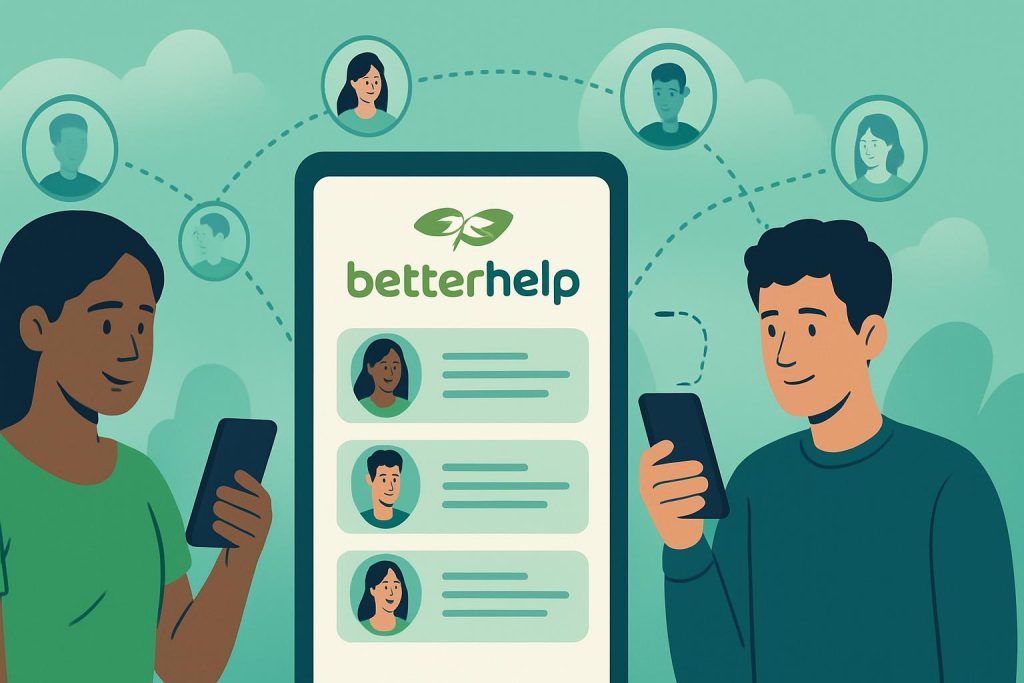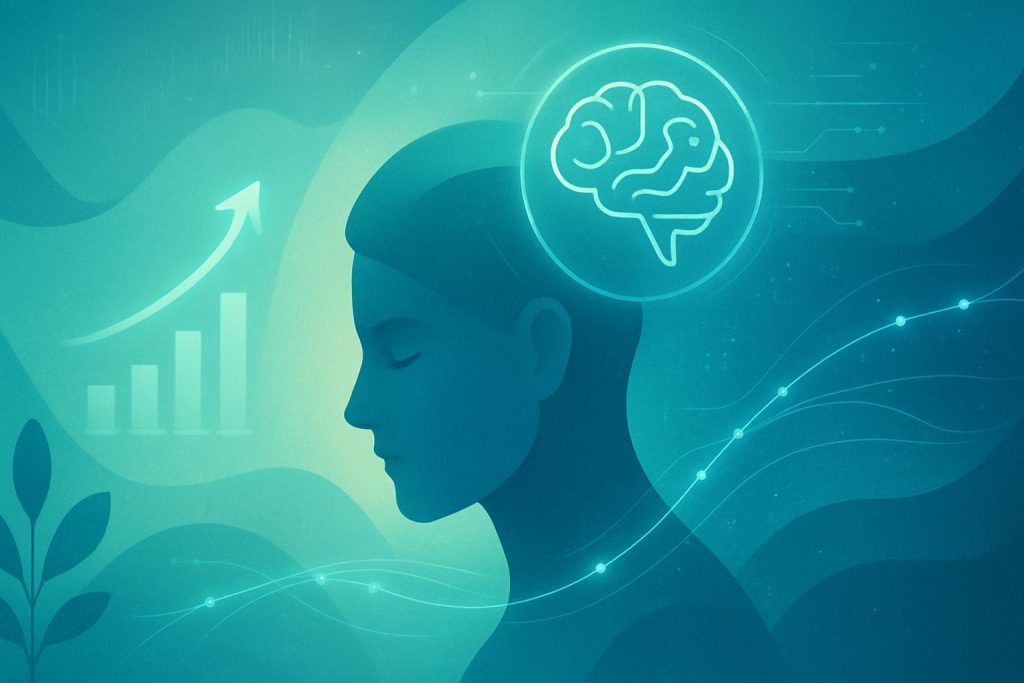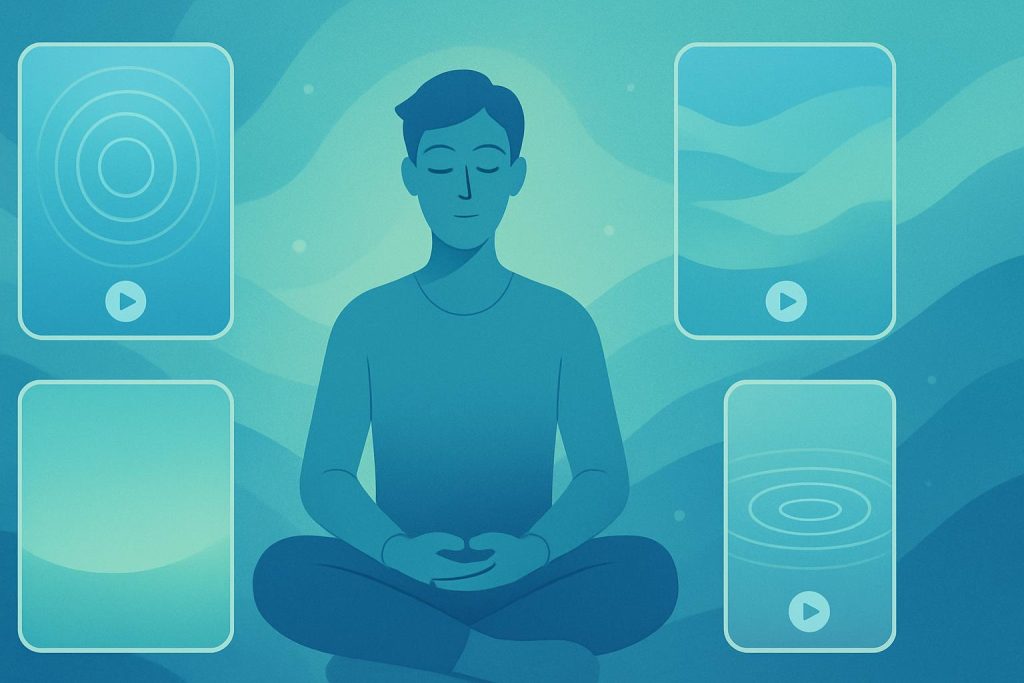Taking the step to seek therapy is a significant move towards better mental health, but navigating the process of finding the right therapist can often feel like another hurdle, especially when facing traditional barriers like cost and availability, as discussed in Accessible online therapy: AI platforms connecting you and Improving your mental health: strategies and AI tools. BetterHelp has emerged as one of the largest and most recognized online therapy platforms globally, aiming to simplify this process and make professional counseling accessible and convenient. It connects users with licensed, accredited therapists through its website and mobile app, offering various communication modalities like messaging, live chat, phone calls, and video conferencing. A key component of BetterHelp’s model is its use of algorithms, potentially incorporating AI principles, to match users with therapists based on their stated needs, preferences, and location. With a vast network of therapists covering a wide range of specialties and a well-established affiliate program, BetterHelp provides a streamlined pathway for individuals to find and engage with professional mental health support online.
BetterHelp’s core proposition is breaking down the barriers to therapy. By operating entirely online, it eliminates geographical constraints (within licensing limits), offers greater scheduling flexibility, and provides a level of discretion that many users appreciate. The platform emphasizes its network of credentialed professionals, ensuring users connect with qualified therapists (such as psychologists (PhD/PsyD), marriage and family therapists (LMFT), clinical social workers (LCSW/LMSW), or licensed professional counselors (LPC)). The sign-up process involves a detailed questionnaire designed to gather information about the user’s background, presenting issues, and preferences for a therapist (e.g., gender, age, therapeutic approach, specialties). This information fuels the matching algorithm, which is central to the platform’s ability to connect users with a potentially suitable therapist quickly, often within 24-48 hours.
This article provides a comprehensive overview of finding licensed therapists through the BetterHelp platform. We will examine:
- The BetterHelp sign-up and intake process.
- How the therapist matching algorithm works (leveraging user data and AI principles).
- The different communication methods available (messaging, chat, phone, video).
- The types of therapists and specializations available on the platform.
- Cost structure, subscription plans, and potential financial aid.
- The BetterHelp affiliate program and its potential for partners.
- User experience, benefits, limitations, and considerations when using BetterHelp.
For those seeking a convenient and algorithmically-assisted way to connect with licensed mental health professionals online, BetterHelp offers a prominent and widely used solution.
Getting started: The BetterHelp intake process
The journey with BetterHelp begins with a comprehensive intake questionnaire. This process is designed to gather essential information for the matching algorithm:
- Presenting Issues: Users identify the primary reasons for seeking therapy (e.g., anxiety, depression, stress, relationships, trauma, grief).
- Symptoms and Severity: Questions delve into specific symptoms, their frequency, and intensity.
- Goals for Therapy: Users articulate what they hope to achieve through counseling.
- Therapist Preferences: Options to specify preferences regarding therapist gender, age range, religious affiliation (if any), sexual orientation, language, and therapeutic approaches (though options might be broad).
- Previous Therapy Experience: Information about past experiences with therapy.
- Basic Demographics: Age, location (crucial for licensing), relationship status, etc.
Completing this questionnaire thoroughly provides the necessary data for the platform’s matching system to operate effectively.
The matching engine: AI-assisted connections
While BetterHelp doesn’t explicitly detail the exact AI models used, its matching process relies heavily on algorithmic analysis:
- Data Input: The system takes the detailed user responses from the questionnaire.
- Therapist Database: It accesses a vast database containing profiles of thousands of licensed therapists, including their specializations, experience, location (for licensing), availability, and potentially client feedback scores (internal metrics).
- Algorithmic Filtering: The algorithm filters this database based on hard constraints (e.g., therapist must be licensed in the user’s state) and soft preferences (e.g., user prefers a female therapist specializing in cognitive behavioral therapy).
- Compatibility Scoring: It likely calculates compatibility scores between the user and potential therapists based on multiple factors – matching presenting issues with therapist expertise, aligning preferences, considering therapist availability, and potentially incorporating insights from past successful matches (anonymized data learning).
- Match Presentation: The platform typically presents the user with a matched therapist, often providing a profile and rationale for the match. Users usually have the option to review the therapist and accept the match or request a different one.
This AI-assisted process aims to significantly improve the odds of finding a good fit quickly compared to manually searching through directories.
Communication modes: Flexible engagement
BetterHelp offers flexibility in how users interact with their therapist, typically included within a subscription plan:
- Asynchronous Messaging: Users can send text, audio, or video messages to their therapist anytime via a secure online
room.” Therapists typically respond within 24 hours (on weekdays).
- Live Chat Sessions: Real-time text-based sessions scheduled with the therapist.
- Live Phone Sessions: Scheduled phone calls with the therapist.
- Live Video Sessions: Scheduled video conferencing sessions, offering face-to-face interaction.
Subscription plans usually include unlimited messaging and a certain number of live sessions per month (often weekly).
Therapist network and specializations
BetterHelp boasts a large network of therapists covering a wide spectrum of mental health concerns, including but not limited to:
- Depression
- Anxiety and Stress
- Relationship Issues
- Family Conflicts
- Grief and Loss
- Trauma and PTSD
- Addiction
- Eating Disorders
- Sleep Problems
- Anger Management
- Self-Esteem
While users can state preferences, the platform primarily matches based on therapist specialization relevant to the user’s presenting issues and state licensing requirements.
Cost, subscriptions, and financial aid
BetterHelp typically operates on a subscription model, billed monthly or quarterly. The cost can vary based on location and therapist availability but generally falls within a range often considered more affordable than traditional weekly therapy sessions out-of-pocket.
- Subscription Tiers: Plans usually differ based on the number of live sessions included.
- Insurance: BetterHelp generally does not directly bill insurance companies. However, users may be able to request documentation to submit for potential out-of-network reimbursement, depending on their insurance plan.
- Financial Aid: BetterHelp offers financial aid or reduced rates to eligible individuals based on income and financial situation, assessed during the sign-up process. This significantly increases accessibility for those who might otherwise be unable to afford therapy.
User experience and considerations
- Pros: Convenience, accessibility, large therapist network, potentially lower cost (especially with financial aid), efficient matching, multiple communication modes.
- Cons: May not be suitable for severe mental illness or crisis situations, potential for therapist mismatch despite algorithms, reliance on technology, variability in therapist engagement (especially via messaging), insurance complexities.
- Switching Therapists: BetterHelp makes it relatively easy to request a new therapist if the initial match isn’t a good fit.
- Privacy: As with any online platform handling sensitive health information, understanding their HIPAA compliance and data security measures is crucial.
Streamlining access to therapy
BetterHelp has established itself as a major force in online therapy by leveraging technology to connect users with licensed professionals efficiently and conveniently. Its AI-assisted matching algorithm aims to simplify the often-daunting task of finding a suitable therapist, while its multiple communication options and subscription model cater to modern lifestyles and budgets. While it’s essential to understand its limitations and approach it as one option within the broader mental healthcare landscape, BetterHelp undeniably expands access to professional support for many who might otherwise go without. Its robust affiliate program also provides a means for advocates to promote accessible mental healthcare. As a key platform facilitating connections discussed in Accessible online therapy: AI platforms connecting you and Improving your mental health: strategies and AI tools, BetterHelp represents a significant application of technology in making licensed therapy more readily available.



